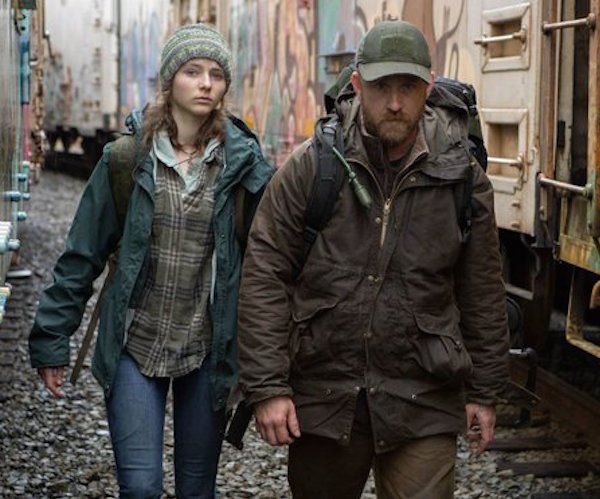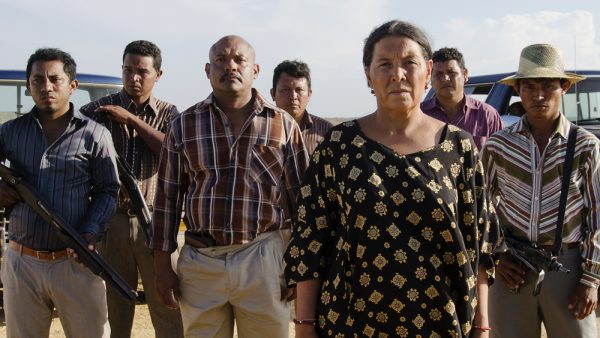Film Review: 5 Women Filmmakers — A Sampling of the Superb
5 Women Filmmakers at the Museum of Fine Arts Boston, March 3 through 20.
This is a finely-selected sampling of what some accomplished women filmmakers offered in 2018.
By Peg Aloi
Women directors were notably absent from this year’s major awards shows, despite having made some of best loved films over the past 12 months. And, though a few women won Academy Awards in the short film and design categories, glaring omissions abounded: no women were nominated in the main feature directing category and no films directed by women were nominated for Best Film, despite garnering critical acclaim as well as honors at festivals. Might it have been an intentional slight? A backlash against the enthusiasm for woman-directed films?
This program at Boston’s Museum of Fine Arts suggests that the movement isn’t slowing down. It features five contemporary women filmmakers and their most recent work, movies that cover a wide range of subject matter and diverse backgrounds: two were official entries for Best Foreign Language Film consideration in the 2019 Academy Awards. Some of these films were widely seen, some have not had wide US release. But they’re a finely-selected sampling of what some accommplished women filmmakers offered in 2018.

Thomasin McKenzie and Ben Foster in scene from “Leave No Trace.”
The program begins March 3 with Debra Granik’s Leave No Trace. She is best known to arthouse audiences for Winter’s Bone: her intense, naturalistic story of a family torn apart by the crystal meth scourge in Appalachia, which starred Jennifer Lawrence in her breakout role. Leave No Trace also features a teenage girl (Thomasin McKenzie), living off the grid with her father (Ben Foster), an Iraq war vet suffering from PTSD. When authorities catch them living illegally in an Oregon state park, they’re placed in housing by social services. This father and daughter find that they have very different ideas of what a safe and comfortable home is. Foster and McKenzie’s performances are subtle, rich in revelatory detail, and incredibly good. The story is a timely one for a nation struggling to take care of its most vulnerable populations.
March 9 features Josephine Decker’s Madeline’s Madeline. This unusual and intriguing film is a playful psychological mind game, daring the viewer to determine the reliability of the film’s narrator. Madeline (Helena Howard in a scorchingly good debut) is a young student whose home life appears troubled; she looks to a theater troupe led by a devoted teacher (Molly Parker) for distraction and escape. Madeline’s talent is considerable but untamed; the theater troupe’s work catalyzes her burgeoning sexuality in ways that become increasingly uncomfortable for the adults in Madeline’s orbit. The film touches on tropes of mother and daughter relations, as well as exploring the (possible) cathartic nature of artistic performance.
Lynne Ramsay’s thriller You Were Never Really Here screens on March 14. The Scottish filmmaker hasn’t released a film since 2011’s We Need to Talk About Kevin, her first film set outside of her native Scotland. All of Ramsay’s dark and mesmerizing films have featured at least one central act of murder — this one is no different. Still, these are not genre horror films, but character studies that manage to mix dreamy visuals and shocking violence with deft ease. In You Were Never Really Here, Joaquin Phoenix plays a mercenary who tracks down girls kidnapped by human traffickers. He brings the same singular focus to the job that he apparently showed when he was in the military (a past that is hinted at via cloudy but intense flashback snippets). The relentlessness of the film’s beauty and brutality are haunting and deeply affecting. Ramsay’s style grows more adroit with each directorial effort; this film, starring a bona fide American movie star, has finally earned her widespread praise as a world class director.

A scene from “Birds of Passage.”
March 17 features the eagerly-awaited Birds of Passage, which will have a theatrical run in Boston later this spring. The award-winning team behind the black and white masterpiece Embrace of the Serpent — Cristina Gallego and Ciro Guerra — have created a compelling portrait of a family in Northern Columbia. From the late ’60s through 1980, the family, part of the indigenous Wayúu tribe, become increasingly involved in marijuana smuggling, initially selling on a small scale to American Peace Corps volunteers. The film starts off with a lyrical segment about a young woman’s coming of age, an homage to the heritage of the Wayúu as a matriarchal clan. But the masculine values of greed and violent revenge soon overtake their traditional values. This film is gorgeously filmed, powerfully acted, and thrilling to watch.
The program closes on March 20 with Zama, directed by Argentine filmmaker Lucrecia Martel. Set during the 17th century, the narrative centers on Don Diego (Daniel Giménez Cacho), an officer born in South America who is serving the King of Spain from an outpost near the Argentine coast. He wants nothing more than to return home to his wife and child in Buenos Aires, but the transfer orders, which must travel by ship from Spain, are slow in coming. Diego doggedly obeys a succession of governors, finally joining a search party for a wanted criminal out of sheer desperation. The film’s visuals are outstanding, filled with idyllic vistas, well-choreographed scenes of military combat, and Don Diego’s melancholy day dreams and turbulent visions. Underlying the uncanny beauty is a deep despair, as the man sees his best years slipping away.
Peg Aloi is a former film critic for The Boston Phoenix. She taught film and TV studies for ten years at Emerson College. Her reviews also appear regularly online for The Orlando Weekly, Crooked Marquee, and Diabolique. Her long-running media blog “The Witching Hour” can be found at at themediawitch.com.
